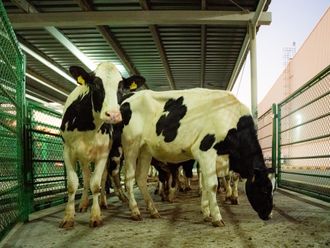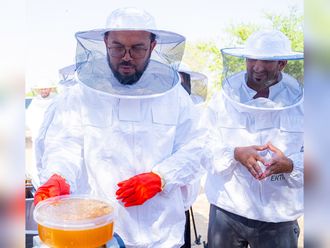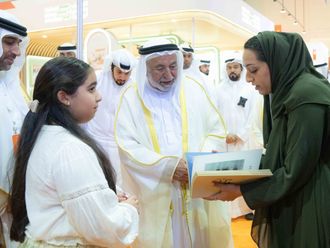Abu Dhabi: The UAE released 1,292 Asian houbara bustard into the wild in the country during the 2011-2012 season, the International Fund for Houbara Conservation (IFHC) announced on Sunday.
The announcement coincided with the Wild Migratory Bird Day (WMBD), which was celebrated across the globe on Sunday, said a press release issued by the fund.
The number of birds released in the UAE builds on the progress made in recent years to restore sustainable wild populations of the endangered bird to the country. This year's number brings the total number of houbara released in the UAE to over 4,400 since the first bird was released in 2004.
Mohammad Saleh Al Baidani, Director General IFHC, said: "It has been another very successful year for IFHC in breeding the houbara and then releasing them into the wild. IFHC is delivering the strategy of President His Highess Shaikh Khalifa Bin Zayed Al Nahyan for restoring Houbara numbers both here in the UAE and around the world. The success of the project in the UAE means that we have had to expand the number of sites where we can safely release the houbara.
"Our global future target is to breed and release up to 50,000 houbara (Asian and North African) every year across the species range, which stretches from Morocco in the west to Mongolia in the east,"he explained.
Al Baidani added: "It is fitting that we make this announcement on World Migratory Bird Day, which seeks to raise awareness about the need to ensure a bright future for migrant birds.
Over thirty years ago the late Shaikh Zayed recognised the danger of the rapid decline of Houbara in the wild and initiated Abu Dhabi's houbara conservation programme. The Houbara is an essential part of our heritage. In breeding and releasing the houbara we are not only addressing the endangered status of this bird, but making sure that future generations can continue to enjoy it in the wild. IFHC is providing a living legacy for Sheikh Zayed's vision to restore the Houbara to our country."
The theme for this year's WMBD is the celebration of the role migrant birds have played in human history and culture. This is particularly relevant to the Houbara, which is so important to Arabic culture and tradition. The houbara is the preferred prey of the falconer and the survival of the ancient tradition of falconry is inextricably linked to the continued existence of the houbara.












